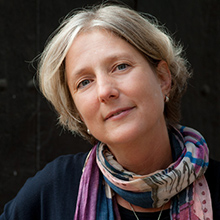- Duración
- 2017-2021
- Coordinador
- Vincent Jaddoe (Erasmus MC-University Medical Center de Rotterdam)
- Financiadores
- European Comission - Horizon 2020
- Página web
- http://www.lifecycle-project.eu
Early life is an important window of opportunity to improve health across the full lifecycle. European pregnancy and child cohort studies together offer a unique opportunity to identify a wide range of early life stressors linked with individual biological, developmental and health trajectory variations, and to the onset and evolution of noncommunicable diseases.
LifeCycle will establish the EU CHILD Cohort Network, which brings together existing, successful pregnancy and child cohorts and biobanks, by developing a governance structure taking account of national and European ethical, legal and societal implications, a shared data-management platform and data-harmonization strategies.
The project will enrich this EU CHILD Cohort Network by generating new integrated data on early life stressors related to socio-economic, migration, urban environment and life-style determinants, and will capitalize on these data by performing hypothesis-driven research on early life stressors influencing cardio-metabolic, respiratory and mental health trajectories during the full lifecycle, and the underlying epigenetic mechanisms. LifeCycle will translate these results into recommendations for targeted strategies and personalized prediction models to improve health trajectories for current and future Europeans generations by optimizing their earliest phase of life.
To strengthen this long-term collaboration, LifeCycle will organize yearly international meetings open to pregnancy and child cohort researchers, introduce a Fellowship Training Programme for exchange of junior researchers between European pregnancy or child cohorts, and develop e-learning modules for researchers performing life-course health studies.
Ultimately, the project will lead to a unique sustainable EU CHILD Cohort Network, and provide recommendations for targeted prevention strategies by identification of novel markers of early life stressors related to health trajectories throughout the lifecycle.
This ambitious project combines data on over 250,000 children and their parents from Europe and Australia to provide robust scientific evidence on this important topic. Research findings will be translated into new prevention and intervention policies focused on the earliest phase of life, giving next generations the best possible start.
Partners
- Erasmus Universitair Medisch Centrum Rotterdam, The Netherlands (Coordinator)
- ISGlobal, Barcelona, Spain
- University of Turin, Italy
- University of Southampton, United Kingdom
- University of Bristol, United Kingdom
- University of Copenhagen, Denmark
- Bradford Teaching Hospitals NHS Foundation Trust, United Kingdom
- University Medical Center Groningen, The Netherlands
- University of Crete, Greece
- Norwegian Institute of Public Health, Oslo, Norway
- French National Institute of Health and Medical Research (INSERM), Villejuif, France
- University of Oulu, Finland
- Samfundet Folkhälsan, Helsinki, Finland
- Ludwig Maximilians University of Munich, Germany
- VU University Amsterdam , The Netherlands
- Concentris Research Management GmbH
- University of Western Australia, Perth, Australia
Total funding
10,4 milions.
Nuestro equipo
Principal Investigators (PI)
-
 Martine Vrijheid Research Professor y directora del Programa de Medio ambiente y salud a lo largo de la vida
Martine Vrijheid Research Professor y directora del Programa de Medio ambiente y salud a lo largo de la vida -
 Jordi Sunyer Research Professor
Jordi Sunyer Research Professor
ISGlobal Team
-
 Xavier Basagaña Research Professor
Xavier Basagaña Research Professor -
 MARIONA BUSTAMANTE Staff Scientist
MARIONA BUSTAMANTE Staff Scientist -
Lourdes Cirugeda Data Manager INMA
-
 Jordi Júlvez Associated Researcher
Jordi Júlvez Associated Researcher -
 Mònica López Investigadora posdoctoral
Mònica López Investigadora posdoctoral -
 Mark J Nieuwenhuijsen Research Professor, Scientific Director of the Severo Ochoa Programme, and Director of the Climate, Air Pollution, Nature and Urban Health Programme
Mark J Nieuwenhuijsen Research Professor, Scientific Director of the Severo Ochoa Programme, and Director of the Climate, Air Pollution, Nature and Urban Health Programme






